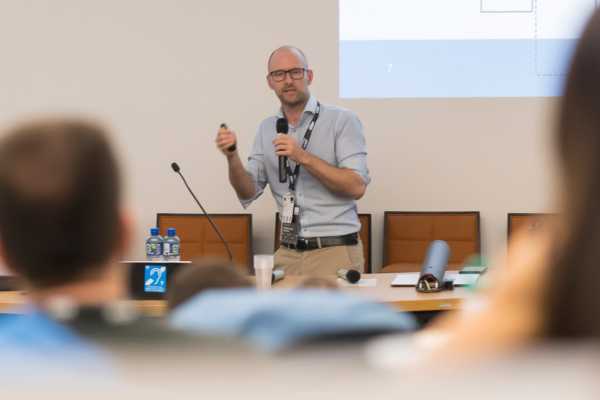
Thessaloniki, Greece
Process Tracing Methods
When:
26 August - 29 August 2025
Credits:
4 EC
Read more
Social Sciences
When:
16 September - 20 September 2024
School:
Institution:
In cooperation with University of Cologne
City:
Country:
Language:
English
Credits:
2 EC
Fee:
550 EUR

Social network analysis focuses on the analysis of relations between nodes. Network analysis can be used to model relationships between individuals (e.g., friendship, co-authorship, social contagion of behaviour), organisations (e.g., policy networks, inter-firm relations), countries (e.g., alliances and conflict, migration, trade), variables (e.g., correlation), and other entities. While network analysis has a long history in the social sciences, it has also become a central method for the study of complex systems in science more widely over the last two decades. Social network analysis is a key method for understanding the transmission of behaviour between entities (“social influence”) and how those who share similarities tend to develop ties (“homophily”).
In this course, we will cover the foundations of social network analysis, including the description and visualisation of networks, different types of networks and data formats, measuring centrality in networks, identification of communities or subgroups within networks, and the basic foundations of statistical modelling of networks, which will also enable participants to confidently take an advanced follow-up course on inferential network analysis.
The course is beginner-friendly and requires basic R skills but no prior training on networks or in statistics. We will cover both the methods and their software implementation and will also schedule applied practical sessions where participants can apply their new knowledge to empirical datasets. Those looking for a more advanced course should consider taking “Advanced Social Network Analysis” (23-27 September).
The morning sessions are delivered as lectures and introduce key concepts and methods. The afternoon sessions are a mix of guided software lab sessions using R and practical application sessions with supervised group work. The R sessions rely on several packages, including the statnet suite of packages, btergm, and igraph.
Philip Leifeld, University of Manchester, England.
You will find the course useful if:
- you need to analyse relational data or network data of any kind.
- you wish to expand their methodological knowledge by learning a set of broadly applicable data science techniques.
- you have experience in conducting social network analysis research using other tools but wish to learn doing SNA in R.
By the end of the course you will:
- be able to format your data in the right way to load them into R and conduct network analysis with them.
- have an overview of network analysis methods and their implementation in R.
- competently choose between different analytical techniques for analysing empirical network data.
- have acquired the necessary knowledge and skills to conduct basic network analysis projects on your own, including conceptualisation of the research and execution and interpretation of the analysis in R.
Fee
550 EUR, Student/PhD student rate.
Fee
825 EUR, Academic/non-profit rate. The rates include the tuition fee, course materials, the academic program, and coffee/tea breaks.
When:
16 September - 20 September 2024
School:
Institution:
In cooperation with University of Cologne
Language:
English
Credits:
2 EC

Thessaloniki, Greece
When:
26 August - 29 August 2025
Credits:
4 EC
Read more

Utrecht, Netherlands
When:
11 August - 22 August 2025
Credits:
1.5 EC
Read more

Cologne, Germany
When:
28 July - 01 August 2025
Credits:
4 EC
Read more